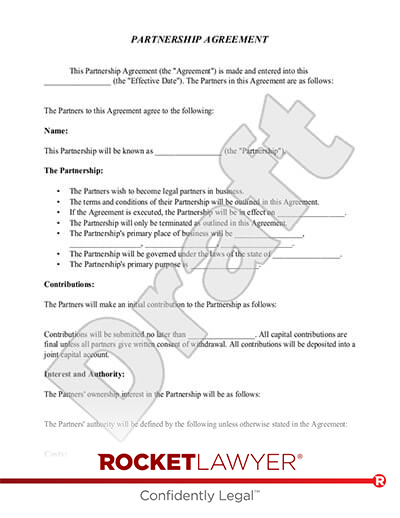Is it a bad idea to go into business with friends?
Starting a business is not easy, but it helps when you have a good friend by your side to work through the challenges. The highs of being a successful business owner are even higher with a good friend, and the lows don't seem quite as bad.
Unfortunately, some great friends make not-so-great business partners. It can be a bad idea to go into business with anyone who does not share your same goals and values, or may not be ready for the responsibility. It can help to make a Business Plan to evaluate the strength of your potential business relationship.
What are the main reasons why businesses operated by friends fail?
In some cases, going into business with friends can ruin the friendships and the company. If you and your friends cannot agree on fundamental aspects of the company before starting your venture together, it can lead to problems. Below are some red flags that a collaboration between friends may be destined to fail.
Trust issues—If you are good friends, you hopefully trust each other. However, when one friend ends up taking advantage of or even stealing from the business, you may have a serious problem. Trusting that your partners will contribute their fair share and only take their fair share can be difficult when you cannot always be there or see what everyone is doing.
Unstable personal life—In some cases, one friend may be on more solid ground when it comes to personal finances and relationships. Personal debt or recklessness with money can be a problem when that friend is responsible for more than just their own finances, or has access to the business's bank accounts. Unfortunately, something like going through a divorce while also trying to run a business can put friends in an awkward position—especially if you do not properly plan or protect the business.
Lacking capital or expertise—It's wise to only go into business with a friend who can contribute expertise, time, or money. Perhaps they have a skill that you do not have, or they have resources that you can't get on your own. Going into a venture together because it is fun is not a good foundation for a long-lasting business. Friends who go into business together may want to complement each other's skills or knowledge so they both contribute to the business equally, but in different ways.
How do I protect myself when going into business with friends?
If you are going into business with friends, you should take the same steps as if you were starting a venture with anyone else. You may want to look at credit reports or run a background check to make sure any prospective business partner is being honest with you about their finances and background.
Form a separate legal entity for your business—Forming an LLC or corporation for your business may be a good idea, even if you were going into business alone. By forming your company as a corporation or LLC, you insulate your personal assets from liabilities that the business may incur. Otherwise, you may be held personally accountable for the mistakes and debts of your friends.
Create a business Partnership Agreement or Operating Agreement—An agreement that sets out how the business will operate, whether incorporated or functioning as a partnership, is essential. A Partnership Agreement or Operating Agreement (if you incorporated as an LLC) will dictate how decisions are made, conflicts resolved, and profits and losses split. It may also address the factors that could trigger the end of the business and how to split the assets if the business closes.
Create business contracts for relationships—Whether you are working with an independent contractor or a vendor, a written contract is a good idea. Written contracts generally set out everyone's rights and responsibilities, and provide clear remedies for when things go wrong.
Share bookkeeping and recordkeeping responsibilities—It is tempting to let one person "run the books," especially if they seem to be good at it. However, everyone involved in the business should have access to and monitor financial and other company records. Keeping up with how the business is doing can prevent a lot of problems down the road.
What needs to be agreed upon when going into business with friends?
Talking to your friends about some of the potentially difficult issues upfront can save a lot of time and headache. Examples of these more sensitive subjects include:
- How will income and losses be split?
- What will happen if the company has to dissolve?
- How will the venture be funded?
- Who will make day-to-day decisions for the business?
- Who has check-writing authority?
- What are the hours and participation obligations?
As you discuss these items, you may realize that a business partnership might not work for you and your friends. Figuring that out early is better than learning it after significant time and money has been invested.
If you want to talk to a lawyer about your business, whether you have already started or you are considering your options and need to sort out the legal details, reach out to a Rocket Lawyer network attorney for affordable legal advice.
Please note: This page offers general legal information, not but not legal advice tailored for your specific legal situation. Rocket Lawyer Incorporated isn't a law firm or a substitute for one. For further information on this topic, you can Ask a Legal Pro.
